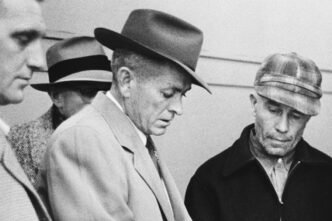1. Statutory Mandate: Honoring a Valid POA
Under both federal statute (notably the Patient Self-Determination Act, 42 C.F.R. § 483.10) and the majority of state probate codes, a nursing home is prima facie required to recognize a properly executed Power of Attorney (POA). A POA that is (i) duly notarized, (ii) durable as to incapacity, and (iii) within its grant of authority—whether for healthcare or financial matters—creates a binding agency relationship that the facility may not unilaterally abrogate.

2. Enumerated Exceptions to Deference
Despite the general rule, a nursing home may challenge or temporarily suspend compliance with an agent’s directives in the following circumscriptions:
- Suspected Exploitation or Fraud
- When there exists a reasonable belief that the agent is misappropriating assets or coercing the principal, the facility may withhold action and refer the matter to Adult Protective Services or initiate a criminal referral.
- Defective or Expired Instrument
- Absent execution formalities (e.g., missing signatures, lack of a durable clause) or if the POA has lapsed by its own terms, the nursing home may decline to recognize the document.
- Intra-Document Conflicts or Multiplicity of Agents
- Where multiple POAs appoint divergent agents or where the instrument’s text is internally inconsistent, the home may request judicial clarification or escalated review by the probate court.
- Medical Ethics or Standard-of-Care Conflicts
- If an agent’s directive would contravene accepted medical practice (e.g., refusal of life-sustaining treatment absent an Advance Health Care Directive), the facility may seek appointment of a guardian ad litem or conservator to resolve the impasse.

3. Procedural Safeguards for Agents
An agent faced with institutional pushback should take the following steps:
- Verify Validity: Confirm that the POA is durable, scope-bound, and executed in compliance with the jurisdiction’s statutory requirements.
- Provide Certified Copies: Submit notarized copies of the POA (and any ancillary directives) directly to the facility’s legal or administrative department.
- Document All Communications: Maintain a detailed log of dates, interlocutors, and substantive exchanges.
- Invoke Ombuds Services: Engage the State Long-Term Care Ombudsman or Adult Protective Services if confronted with unwarranted refusal.
- Retain Counsel: In protracted disputes, secure elder-law representation to petition the probate court for enforcement or appointment of a temporary conservator.

4. Supersession by Third Parties
Even where a POA is valid, it may be overridden by:
- The Principal: So long as mental competency persists, the principal may revoke or amend the POA by written notice.
- Court-Appointed Guardian/Conservator: Upon a finding of incapacity or misuse of authority, the probate court may suspend or terminate the agent’s power and install a guardian or conservator with plenary—or limited—authority.
- Successor Agents: If the primary agent is incapacitated, resigns, or is disqualified, a named successor in the instrument steps into the agency role.

5. Key Takeaways
| Scenario | Nursing Home Authority |
|---|---|
| Valid, Durable POA | Must be honored without undue delay |
| Suspected Fraud or Exploitation | May be temporarily challenged; APS referral allowed |
| Improperly Executed or Expired Instrument | May refuse compliance until validity is judicially confirmed |
| Competing Directives or Multiple Agents | May pause decisions and seek probate court guidance |
| Agent Directives Contrary to Standard of Care | May petition for guardianship or conservatorship |
6. Bottom Line
A nursing home lacks authority to unilaterally override a valid POA. Nevertheless, institutional stakeholders retain the right to contest an agent’s actions on grounds of fraud, invalidity, conflict, or ethical inconsistency—and to pursue protective or judicial remedies. Agents should proactively ensure their instruments are durable, meticulously executed, and properly communicated to forestall any institutional resistance.







